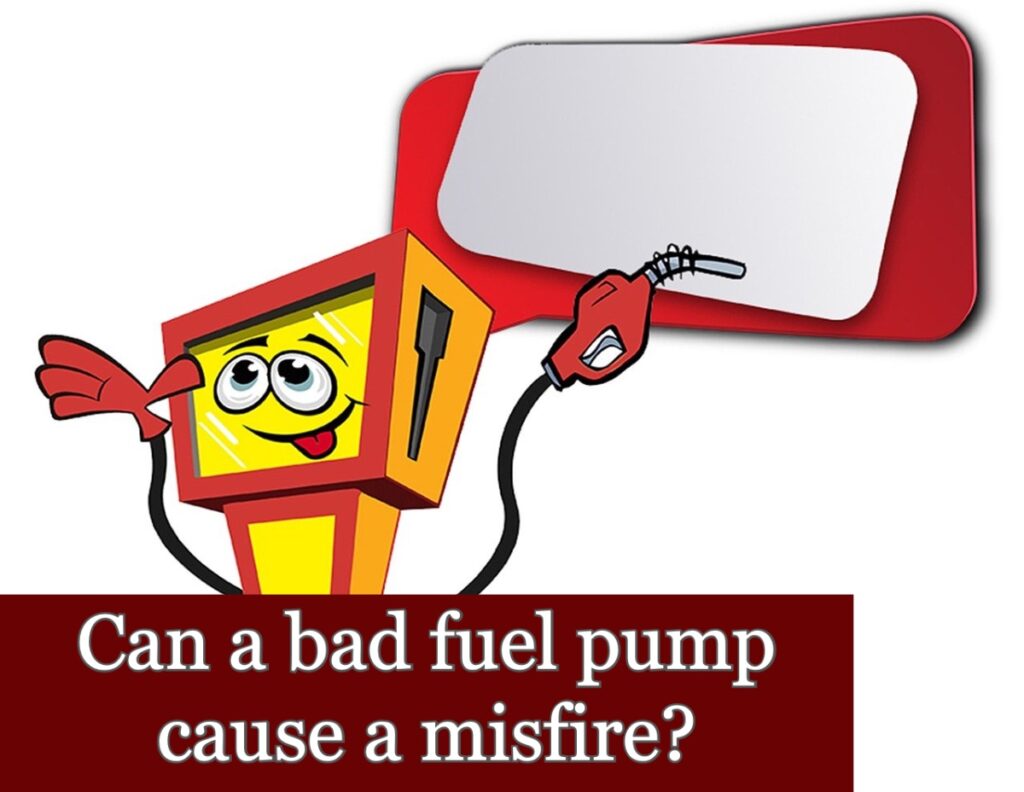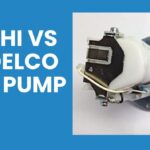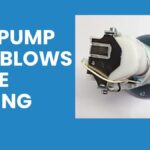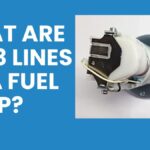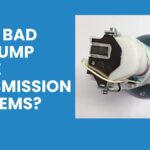Are you suddenly noticing your engine lose speeds (RPMs) while driving at the highest speeds? It’s a common sign that your fuel injector is a dirty or damaged ignition coil. But can a bad fuel pump cause a misfire? If you find your vacuum is good, and the ignition coil works fine, you should look at the fuel pump.
Typically, random engine misfires occur due to faulty or damaged fuel pumps. If fuel pump problems arise whether it is an electronic connection problem or a jammed filter, fuel can’t be delivered in its own style. As a result, the fuel pressure gets low.
It prevents the engine from getting a little amount of fuel which in turn causes the engine to misfire. However, this isn’t a fact. As the problem arises already, now, you should take immediate steps to eliminate this, right? We’ll discuss the destructive impact of a faulty fuel pump and the elimination process.
Can A Bad Fuel Pump Cause An Engine To Misfire?
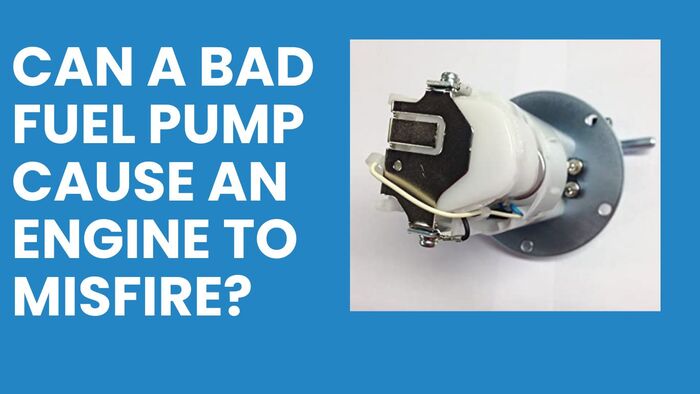
Unfortunately, a damaged fuel pump affects engine health harshly. Misfires happen due to many reasons. But when it comes to bad fuel pumps causing misfires, then there are several points that need to focus on. There are several reasons why the bad fuel pump is the main culprit creating misfires, we aim to let you know the most possible reasons.
Reason #1: Low fuel Pressure
There are lots of harmful effects caused by faulty fuel pumps. The fuel pump is considered one of the vital parts of any vehicle as it delivers the right fuel to the engine. This way, it keeps the engine condition and performance top-notch. But when the fuel pump starts to fail or any bad thing happens to the pump, the engine lacks more fuel than normal. It happens due to low fuel pressure.
A damaged pump can’t push the oil or fuel too hard to meet the needs. Consequently, the engine can’t provide better ignition which in turn causes misfires.
Possible Solution: Increase the fuel flow by replacing the old fuel pump or fixing the issue. You can hire a professional to do the job, or you can handle it yourself. Make things clear first by checking the owner’s manual.
Reason #2: Lean Fuel or poor fuel delivery
A faulty fuel pump has limitations in sending adequate fuel to the system i.e. engine. Meanwhile, you notice your car uses too much gasoline than expected or specifications. However, in some cases which are concerning, faulty gasoline units deliver little fuel to the engine which prevents smoothness.
Thus, the engine suffers from fuel deficiency resulting in engine failure and works hard to create ignition. This way, the engine loses its efficiency and functionality. In the end, you’ll notice the engine is misfiring or take time to start.
Reason #3: Poor Combustion
Better spark plugs for the highest sparks. The same thing goes for the fuel pump. The fuel pump takes the fuel from the fuel tank and then delivers it to the engine combustion chamber. This way, the engine gets a quick start and better ignition.
Let’s imagine the reverse part. Suppose you have a faulty pump. What happens then? Simply put, fuel delivery will fall into threats that ultimately cause inappropriate combustion. As a result, you should pay the fine as the engine faces difficulty when starting.
Possible Solution: Make the combustion more effective by fixing the fuel tank or pump and clearing the fuel entering the path.
Reason #4: Inadequate Air-fuel mixture
Bad fuel pumps consume more fuel than normal. Consequently, there seems to be an incomplete air-fuel mixture which causes significant problems. When the air and fuel mix inappropriately, the air enters the engine more than the fuel.
This makes incompatibility in producing a better spark and ignites properly. The combustion process is complete when air and fuel are mixed properly. But a failing pump pushes more air than fuel which creates incomplete combustion i.e. misfires.
Possible Solution: Check and determine the issue first. Then, try to minimize the air-fuel concentration and fix the fuel pump issue. If you can’t handle this heavy task, consult with a professional to get the job done.
Reason #5: Clogged Fuel Filter
Jammed or clogged air or fuel filter is a great hindrance to letting the engine get enough fuel. As the engine doesn’t give access to enough fuel, it’s normal to let the engine down. If the fuel filter is jammed, the air or fuel can’t deliver easily which lacks fuel on the fuel-needed component.
Possible Solution: It’s common to have dirt, dust, and other contaminants get into the fuel filter and block it. So you must remove the fuel filter and clean it thoroughly. After cleaning perfectly, place it back.
Reason #6: Create Less Spark
Spark is important when starting your car or engine. Without a better spark, the engine produces poor combustion. Poor sparking happens due to a lack of sufficient air or fuel delivery. And we know a bad fuel pump can’t deliver the right fuel. And poor combustion and ignition cause the engine to start late or delay starting.
Possible Solution: Check the spark plug condition and fuel delivery system. If there is any fault, take your car into the garage and leave it for a professional technician.
Reason #7: Crank Pump Relay
Last but not least. A crack or broken pump relay causes great damage to the fuel pump. And it then damages the fuel pump entirely. A relay is considered an integral part that directly contributes to combustion and provides enough power to function properly. In general, if the pump relay is bad, understand the fuel pump itself is bad as well.
Possible Solution: There is no worthy solution other than replacing the whole relay. So if you determine the relay is damaged or broken, in a hurry to change it as a whole
Read also: Fuel Pump Failure: Causes, Solutions, and Proactive Maintenance Tips
How To Know If The Fuel Pump Starts To Fail Or Gets Damaged Completely
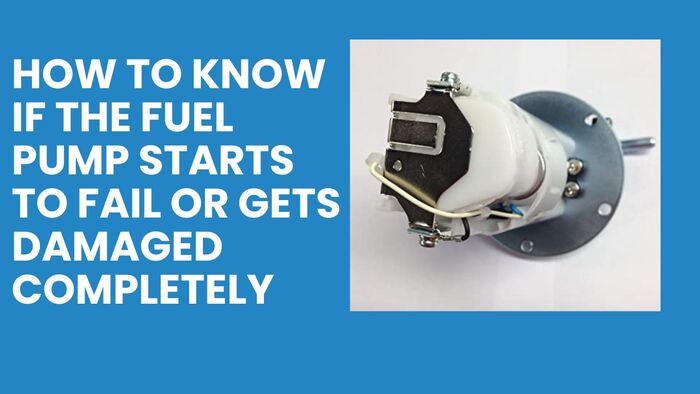
Many individuals can’t identify and find it overwhelming to determine whether the problem is on the fuel pump or others. To make this understandable, the following highlights some common symptoms shortly.
Engine Heats Quickly
The most common sign of a bad fuel pump that everyone whispers is engine overheating. If the gasoline pump or tank gets dirty or any problem occurs, you surely notice engine heat so quickly after driving for a few moments. So when you experience this issue, check the pump hurriedly.
Lower Gas Mileage
Another telltale indication of a faulty fuel system is decreased gas mileage. You notice the gas or fuel requirement increases more rapidly than normal when the system is corrupted with some issues. Also, the fuel economy or efficiency gets lower and lower. As a result, you should insert more fuel into the tank than average.
Engine Misfires Or Hard Starting
Well, this a concerning yet frequent symptom that tells you your fuel system needs extra attention. A faulty pump can’t deliver enough fuel to the engine. Hence, the engine takes a long time to start and often, starting is a beyond thing.
Whining Noise
A faulty pump delivers less fuel to the system causing a drying situation. Consequently, the engine and other components work hard to deliver performance. Also, without enough fuel or contaminated fuel, you can’t avoid hearing whining noise.
Maintenance Tips to Keep Your Fuel Pump Tune
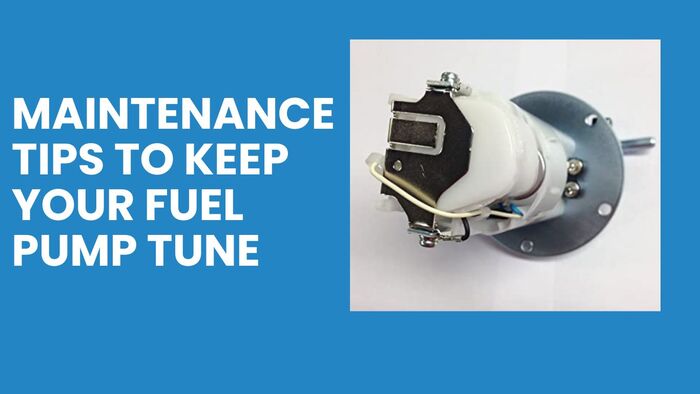
If you take some measurements into account, you can easily minimize paying the cost of installing the fuel pump. Here are a few tips you can follow to let away further hassle. Hence, know them for keeping your fuel pump tuned always.
Tip 1: Always monitor and check the fuel tank. If you make a mistake in checking the fuel tank once a day or a week, you are doing wrong. Because after every ride, the fuel loses its uniqueness and gets dirty. So after having some mileage, you need to change the fuel. Experts are recommended to change the fuel every 3ok miles.
Tip 2: Don’t forget to put the fuel in when the fuel ends up to 70%. So always try to keep the tank full. It’s good practice.
Tip 3: Change the old fuel first before inserting new. Many individuals make mistakes here. Mixing with old and new fuel makes the entire fuel dirty which in turn provides zero efficiencies.
Tip 4: Use recommended fuel, not average or incompatible fuel. Using the wrong fuel creates significant damage to the fuel system.
Tip 5: When replacing the fuel pump, always focus on quality. Don’t install an average or low-profile fuel pump to save a few bucks.
Final Touch
The fuel pump is considered the heart of any vehicle be it a motorcycle or a self-driven car. So you should pay extra attention to keep it functional. But from time to time, this component fails to perform, i.e. go bad. As a result, many car owners face trouble and pay significant costs now and then.
We all know engine misfires due to several reasons. But can a bad fuel pump cause a misfire? The answer is yes, it does. Faulty fuel pumps cause great problems including misfires. As a result, you need to know the reasons, the solution, and how to maintain this unit for a better service. Hope this guide helps you understand everything.

